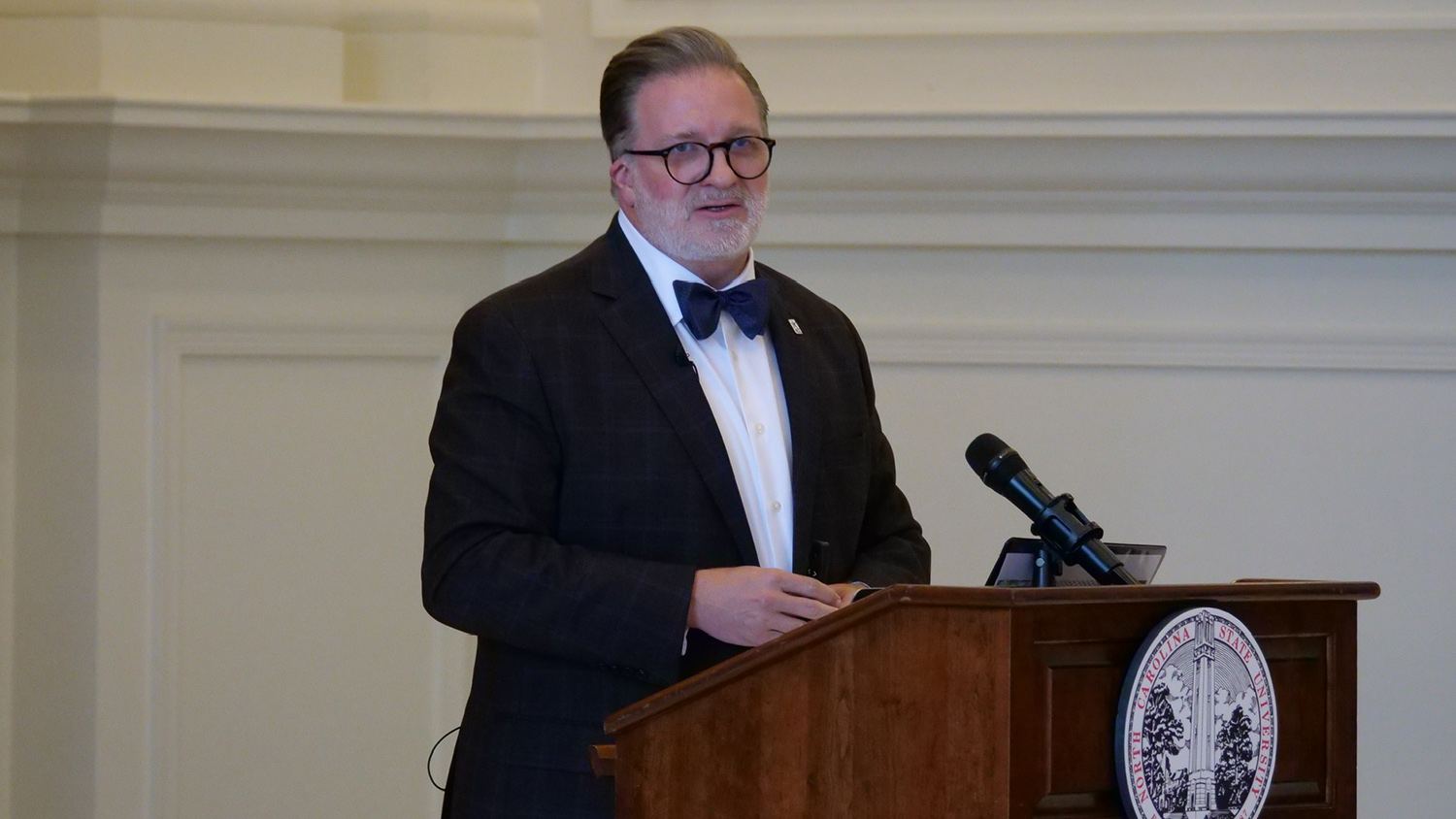Award-Winning Book Chapter Authored by Assistant Professor Ela Castellanos-Reyes Highlights How Latin American Educators Leveraged Free Tools During Remote Learning

A book chapter authored by NC State College of Education Assistant Professor Ela Castellanos-Reyes has been awarded the Association for Educational Communications and Technology’s Culture, Learning and Technology Division’s 2023 Outstanding Publication Award.
The award recognizes an outstanding published book chapter in the field of culture, learning and technology that has been published within the past three years.
“What is important for me in receiving this award is that it is not an award for myself as a researcher, but it’s an award for the work and for the publication itself,” Castellanos-Reyes said. “Each design case presented in our chapter brings forward how practitioners are deploying the research that we do every day in the field. It translates research into practice and, I believe, gives a voice to all of the Latin American practitioners and researchers who are working in the global south.”
The chapter, entitled “Mobile Learning for Emergency Situations: Four Design Cases from Latin America,” was published in Global Perspectives on Educational Innovations for Emergency Situations. It presents case studies from Brazil, Colombia, Mexico and Panama that focus on how educators in each country implemented emergency mobile learning in response to the COVID-19 pandemic.
The work began from Castellanos-Reyes’ efforts to find other Hispanic researchers in her field of instructional design. After connecting with her three co-authors—Enilda Romero-Hall, of the University of Tennessee at Knoxville, Lucas Vasconcelos, of the University of South Carolina, and Belen García, of the University of Michigan at Dearborne—the group conducted a panel discussion on the role of Hispanic researchers in the field and ultimately collaborated on the book chapter. The regions selected for study in the chapter each represent a country where one of the authors was born.
“Receiving this award makes all the time spent trying to build a network worthwhile,” she said. “It started several years ago, with me just trying to find people who I could recognize myself in, and then it evolved, so this is a big recognition of our work.”
The chapter largely focuses on how educators in each of the four represented countries were able to leverage free resources that were readily available to them when remote learning began.
For example, the case study on Brazil focuses on an exchange opportunity between Brazilian and U.S. elementary school students using Netbooks and educational blogs while the case studies from Panama and Mexico highlight how educators were able to leverage tools like WhatsApp, Facebook and YouTube in their K-12 teaching.
“Sometimes, we take it for granted, but many institutions can’t afford a learning management system, so they don’t have things like Moodle. The learning management system becomes WhatsApp or Facebook or YouTube. These are the things our educators have on hand that are free,” Castellanos-Reyes said.
The case study from Colombia, which examined a higher education setting, also focused on the utilization of tools like Google Workspace, WhatsApp and Kahoot, along with how teachers balanced the pressure to be technologically savvy and responsive to students with the need for personal time.
“I hope that people who read this chapter learn that remote teaching doesn’t have to hurt, and it doesn’t have to be expensive. We need to leverage those things that don’t cost extra, not only to the students but to the instructors,” Castellanos-Reyes said. “We should definitely pay attention to the simple things because it’s not about the next flashy technology, it’s about leveraging what we have everyday in our hands, like WhatsApp.”
Expanding upon this work, Castellanos-Reyes is currently working on projects to elevate the impact of educational resources on student success and facilitate the continued improvement of open educational resources.
Having resources openly available, she said, is crucial for equity and is part of the reason she and her co-authors agreed to write their now award-winning chapter, as the book is open-source and freely available to all educators and researchers.
“We all believe in open science. If we talk about accessibility inclusion, we need to have openness in our publications,” she said.
- Categories:


